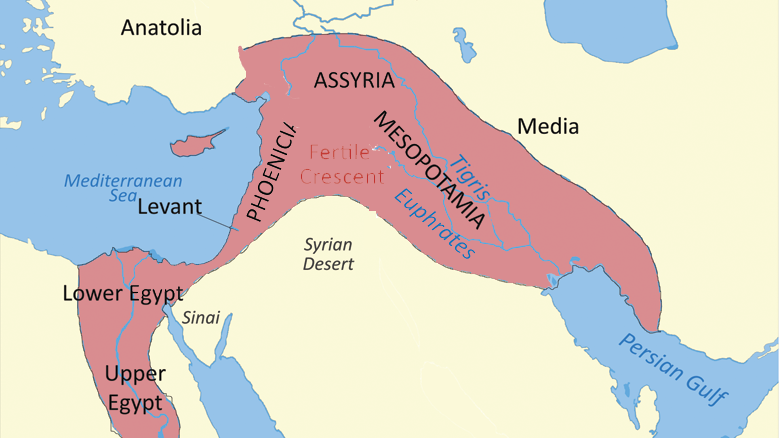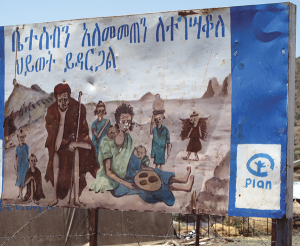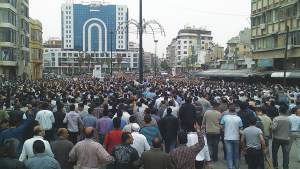
I decided, as a senior at Germantown Friends School, to devote my life to working for peace. Not being politically inclined, I looked for another way to promote peace and found guidance in an advertisement in Scientific American. “A Statement of Conviction about Overpopulation” was its title. Its message was clear: “unless a favorable balance of population and resources is achieved with a minimum of delay, there is a prospect of a Dark Age of human misery, famine, and unrest.”
“We believe,” it continued, “that widespread, effective, and voluntary use of medically sound and individually acceptable birth control is an essential factor in any humane design to raise world living standards and achieve international peace.” The Planned Parenthood Federation of America paid for the advertisement, which appeared in 1960. It was signed by 34 Nobel laureates as well as many other distinguished citizens of 17 countries.
This document is what set me off on a lifetime of concern about human population. At times of doubt, I have wondered if my concern is ill-founded. There are so many other problems in the world; isn’t it silly to be concerned about the numbers of people? Furthermore, aren’t people good, and more people better?

Then I realized that all the other world problems are only made worse by increasing numbers of humans. I realized that the issue of population is closely tied into human rights and other issues about which we Friends care so much. Recently there has been evidence that, indeed, family planning decreases poverty and helps secure the rights of women and children. Furthermore, there may exist a significant relationship between increasing numbers of humans and armed conflict in the Middle East.
Population isn’t the only factor creating problems; technology and consumption also affect the outcomes. There are two reasons, however, to concentrate on population. The first is the more important. In my medical practice I have encountered hundreds of women who want to have control over their fertility: to limit the size of their families or abort an unplanned, unwanted pregnancy. The other reason is peculiar to Friends. Simplicity is one of our core beliefs, our testimonies. Many of us already conscientiously lead relatively simple lives. Aside from us, I have rarely encountered people who so abide by Gandhi’s saying, “Live simply so that others can simply live.”
For years, I felt as though I were alone in my concern for human population. At the first meeting I attended of Quaker Earthcare Witness (QEW, formerly “Friends Committee on Unity with Nature”), I was delighted to find others who shared this concern. I had found my spiritual home, thanks to Bill Howenstine, Stan Becker, Roy Treadway, and other Friends.
These Friends not only realized the problems caused by human population but were active in helping people have control of their fertility. Bill and his wife, Alice, had worked with the
American Friends Service Committee in Peru helping with family planning, and Bill clerked the Population Committee. Stan and Roy had also turned their concern into action. Both have doctorates in demography and taught that subject at first-rate universities. I had learned about Stan when he appeared on the cover of an issue of Friends Journal. Inside was an article about Stan’s witness on population that he carried to Friends meetings.
QEW cares about more than just population, of course. We are a group of Friends who are concerned about our environment. We turn our faith into action in different ways—some by supporting Friends Committee on National Legislation, some by representing QEW at United Nations meetings, and many by working in our meetings or hometowns on various projects. We are all following the Quaker adage of letting our lives speak.
Medical school was drudgery after the excitement of Swarthmore College. After a year of internship, I was able to fulfill my responsibilities as a conscientious objector in the early 1970s in a small town in New Mexico. One incident shows the advantage of practicing medicine in a village. For three Sundays in a row, the Catholic priest preached against my prescribing birth control. When he came to me as a patient, I thanked him for his free advertising!
Throughout this decade after college, I remembered a few words that a man from India had told me. We had met while walking in the Crum Woods at Swarthmore. At the time, I was happy because of my recent acceptance into medical school. He was walking back to Pendle Hill where he was staying when we struck up a conversation. I told him that I was planning a career in medicine because of my concern about human population. He replied, “Come to India; we need you.” That became my life plan for many years: to deliver family planning services in developing countries.
Although I have practiced medicine a bit in developing countries, most of my work has been in the United States. Statistics suggest that family planning is even more important here than in India! Half of pregnancies in this country are unplanned, and we have an outrageously high abortion rate compared to other rich countries. Finally, our rate of consumption is so high (and consequently so are our carbon emissions) that any effort to increase family planning will have a significant effect.
People readily recognize the benefits of family planning to individuals but are less likely to recognize the dire need for the planet. What is the least expensive way to slow emission of greenhouse gases and thus slow climate change? What is the best way to help people out of poverty? What is the best return on money spent in the field of public health? The answer to each of these questions is family planning, which pays back as much as $7 for every dollar spent!
Planetary resources are already over-appropriated. The ecological footprint estimates that it would take one and a half planets to support humans sustainably with our current population and consumption.
Although we may live pleasant lives at the present, our current use of resources means that our progeny will probably suffer. Already many people in other countries and in poorer parts of the United States bear the burden of our profligate use of resources. I wonder frequently what sort of world we are leaving for our three grandchildren and suspect that it will be very different from the world my generation has enjoyed. Will the future bring hardship due to limited resources? Will there be wars over the resources that remain?
This is all pretty theoretical. Is there any suggestion that we have, inadvertently, increased the risk of war? Unfortunately, there is.
We are familiar with political destabilization in Syria. Now there is clear evidence that this is related to—and probably due to—climate change. Almost all scientists attribute climate change to increased greenhouse gases. The greenhouse gases were emitted by large numbers of people using large amounts of fossil fuel. Raising meat for human consumption is also a major contributor of greenhouse gases.
“Climate change in the Fertile Crescent and implications of the recent Syrian drought” is the title of a paper by Colin P. Kelley, Shahrzad Mohtadi, Mark A. Cane, Richard Seager, and Yochanan Kushnir that may be the first study connecting climate change with an armed conflict. It suggests that the drought that affected the Fertile Crescent is due, in part, to global climate change.

Like most other places on Earth, the Fertile Crescent has some dry years and some wetter ones. In addition to this variability, the record shows a trend toward higher temperatures and less rain during the past half century, and especially over the previous 20 years. This was the background for a three-year drought that started in 2006 and caused massive crop failures and the death of countless animals.
The response of many Syrian farmers was to move to urban areas. Neither the cities nor the government welcomed these poor newcomers who had poor skills for urban living. Hunger was a companion for these people who were used to growing their own food. Watching their families suffer, men became desperate and were easily convinced to join the Syrian revolution.
This was not the first case of a change in climate causing havoc in a society that is unprepared to deal with it. The Ancestral Puebloans (Anasazi) established a prolific culture in what is now the Four Corners region in the U.S. Southwest. More people lived in the area 800 years ago than live there now. Archeologists believe that drought made it impossible for the land to support such a large population. People abandoned what had been their home, leaving behind signs of violence and even possible cannibalism. Elsewhere, it is theorized that cutting down the cedars of Lebanon changed the local climate. These magnificent trees were valued for building ships, including Noah’s ark. Desertification of the Middle East was likely worsened by this deforestation. Jared Diamond’s book Collapse details more examples of human populations that exceeded the land’s carrying capacity, with disastrous results.
Let’s get back to Syria. Part of the cause of the revolution originated in that country, and part of it had its roots elsewhere. The population of Syria has been growing rapidly without an adequate improvement in the capacity of the country’s infrastructure. Its government was very slow to react to climatic changes, and it did little to assist the many migrants. This cause of war is the nation’s. A large portion of the cause of the Syrian war, however, is global. Rich countries unwittingly brought it about through climate “weirding,” caused by our exorbitant consumption of fossil fuels and of meat.
There are now over seven billion people on Earth. If there were only a fraction of that number, each of us could have the current level of consumption with much less detriment to the environment. It is obviously too late to limit our population to a sustainable level, but we can slow its growth rate. Indeed, preventing unplanned, unwanted pregnancies should be a goal for humanitarian reasons. Studies suggest that half of all pregnancies conceived in the United States are unplanned, and worldwide the figure is 40 percent.
Could family planning make a significant difference to the common good in addition to benefitting individuals? The answer is a strong “yes!”
We know that children are healthier if pregnancies are well-spaced. Planned, loved children are more likely to get more care and attention while growing up. In addition, there is strong evidence that slowing population growth could provide 16 to 29 percent of the emissions reductions necessary by 2050 to avoid dangerous climate change. Indeed, filling the need for family planning may not only be compassionate but also the least expensive way to combat climate change.
We can see the path of causation connecting growing human population and armed conflict. How can we slow climate change and perhaps prevent future wars? Perhaps it is most important to continue to follow our testimonies; Friends can be examples to the rest of the world by endeavoring to lead simple lives. It is difficult, however, to go against the world of advertising, capitalism and those who push continual growth.
Many readers of Friends Journal are parents or grandparents already. What can we do if we are past childbearing? I suggest looking at the importance of family planning from what might be a new angle: in addition to empowering individuals, contraception can also help to slow climate change and perhaps even prevent armed conflict. Adding to all the things that we already do to limit our carbon footprint, we should consider eating less meat and supporting family planning services.



Comments on Friendsjournal.org may be used in the Forum of the print magazine and may be edited for length and clarity.